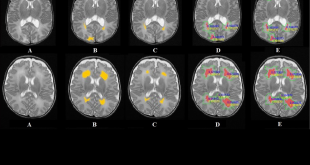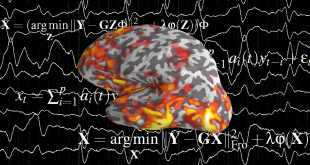A team of bioelectronics researchers at Mines Saint-Étienne has developed a new type of electroencephalogram electrode using a temporary tattoo technique. As effective as traditional electrodes, but much more comfortable, they can provide extended recordings of brain activity over several days. The famous decalcomania transfer technique – made popular in France by the Malabar chewing gum brand in the …
Read More »Search Results for: Brain
Imaging to help people with brain injuries
People with brain injuries have complex cognitive and neurobiological processes. This is the case for people who have suffered a stroke, or who are in a minimally conscious state and close to a vegetative state. At IMT Mines Alès, Gérard Dray is working on new technology involving neuroimaging and statistical learning. This research means that we can improve how we …
Read More »Technology that decrypts the way our brain works
Different techniques are used to study of the functioning of our brain, including electroencephalography, magnetoencephalography, functional MRI and spectroscopy. The signals are processed and interpreted to analyze the cognitive processes in question. EEG and MRI are the two most commonly used techniques in cognitive science. Their performances offer hope and but also concern. What is the current state of affairs …
Read More »Pierre Comon: from the brain to space, searching for a single solution
Pierre Comon’s research focuses on a subject that is as simple as it is complex: how to find a single solution to a problem. From environment to health and telecommunications, this researcher in information science at GIPSA-Lab is taking on a wide range of issues. Winner of the IMT-Académie des Sciences 2018 Grand Prix, he juggles mathematical abstraction and the …
Read More »Mathematical tools for analyzing the development of brain pathologies in children
Magnetic resonance imaging (MRI) enables medical doctors to obtain precise images of a patient’s structure and anatomy, and of the pathologies that may affect the patient’s brain. However, to analyze and interpret these complex images, radiologists need specific mathematical tools. While some tools exist for interpreting images of the adult brain, these tools are not directly applicable in analyzing brain …
Read More »The brain: seeing between the fibers of white matter
The principle behind diffusion imaging and tractography is exploring how water spreads through our brain in order to study the structure of neurons. Doctors can use this method to improve their understanding of brain disease. Pietro Gori, a researcher in image processing at Télécom ParisTech, has just launched a project called Neural Meta Tracts, funded by the Emergence program at …
Read More »The brain: the mechanics of convolutions
Why do our brains have so many folds? The answer to this question is far from simple. In fact, the answer only came at the beginning of 2016, from a team of researchers including members from Harvard University and Télécom Bretagne. Unlike some of the theories previously proposed, this answer has nothing to do with genetics. The convolutions in our …
Read More »Alexandre Gramfort translates our brain waves with algorithms
Alexandre Gramfort is a young researcher at Télécom ParisTech and just received an ERC starting grant. This prestigious European prize and support acknowledges his research efforts in signal processing and machine learning. For the last eight years, Alexandre Gramfort has worked on mathematical tools to better extract, analyze and visualize brain signals, essentially using electroencephalograms and magnetoencephalograms. In order …
Read More »Innovation in health: towards responsibility
Digital innovations are paving the way for more accurate predictive medicine and a more resilient healthcare system. In order to establish themselves on the market and reduce their potential negative effects, these technologies must be responsible. Christine Balagué, a researcher in digital ethics at Institut Mines-Télécom Business School, presents the risks associated with innovations in the health sector and ways …
Read More »Gaël Richard, IMT-Académie des sciences Grand Prix
Speech synthesis, sound separation, automatic recognition of instruments or voices… Gaël Richard’s research at Télécom Paris has always focused on audio signal processing. The researcher has created numerous acoustic signal analysis methods, thanks to which he has made important contributions to his discipline. These methods are currently used in various applications for the automotive and music industries. His contributions to …
Read More » I'MTech L'actualité scientifique et technologique de l'IMT
I'MTech L'actualité scientifique et technologique de l'IMT









